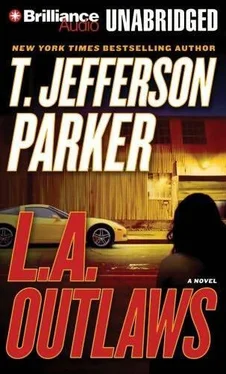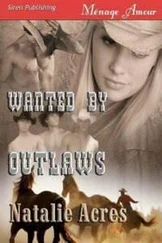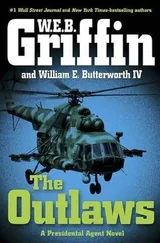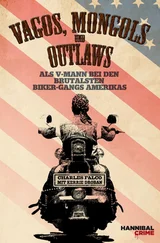When he was finished waxing it he walked around it with a critical eye, brushing with his finger the small imperfections that an older car will develop.
Lupercio remembered that evening in December of 1979 when he was nineteen years old and finishing up his shift on the construction site of a new American hotel on the Salvadoran coast. He was stowing tools in the boss’s truck when a car came up the winding road toward them. It was new, black and shiny. He recognized it as a Lincoln Continental Town Car. The shimmering ocean reflected on the flank of the car, and the blaze of the setting sun crept along the hood. It stopped and out stepped a man in a tan suit and a woman wearing a white dress. They were norteamericanos. The man was heavy and poorly shaped and the woman was tiny and nervous. It had been six months since Lupercio had found his brother dead in the pile of bodies at Puerta del Diablo , and two weeks since he’d found his father in almost exactly the same place. And the hope that had fled from him now suddenly rushed back as he looked at that car. Not at the people, not at the ocean, not at the sunset-but the car.
At first he didn’t understand why. How could hope come from an automobile? But he couldn’t take his eyes off it. It was large and he sensed that it was very heavy. The sides were great black slabs of steel and the fenders were bladelike chrome. There were triple vertical vents behind the front wheel wells that looked to him like shark gills, and the chrome trim twinkled.
Then Lupercio realized that this car was not only beautiful and useful, but unkillable. He would never find it chopped into parts and dumped into a mountain of other parts. It would never bleed.
He walked over and humbly acknowledged the man and woman, then placed his hands behind his back in a gesture of subordination and walked around the car. Twice. He drank in the overall posture of this machine, its firm stance and its powerful body lines and the fit of the quarterpanels and brilliance of the black paint even in the falling light. He saw the little things, too-the simple elegance of the spoked wheels, the depth of the wells, and again, the splendid chrome. His heart fluttered when he saw the indentation down by the edge of the driver’s side door, a deep rounded pit that he first mistook for a bullet hole. But he saw that the body steel hadn’t been penetrated. The paint had not broken away. A rock, he thought, thrown by a peon or maybe just dislodged by a bus.
Eleven years later he found the car for sale on a lot in Azusa for fourteen hundred dollars. It had one hundred and ninety thousand miles on it. The orange painting on the windshield read: “EXTR A CLEAN.” Lupercio had placed his finger in the pit in the door, which looked exactly as he remembered it. He tried to reason how this car had gone from Salvador to the United States. He couldn’t. Just like the car’s effect on him all those years ago, its appearance here went beyond reason. It was a miracle.
Late that night he came back and stole it. The first thing he did was have the dent fixed. There was no way to tell that the door had ever been anything but perfect.
Two years later when he was becoming more prosperous Lupercio had actually purchased another such Lincoln-same year and model. It was a dark forest green. He had hoped to double his pride and his luck. But the second car carried no history and no magic at all, though it ran well and looked good. He gave it to Consuelo.
Lupercio had just pulled the Lincoln back into the garage when his cell phone rang. He saw from the call number that it was the call he’d been waiting for. El Toro.
The Bull.
Ifinally get Hood to leave Laguna ahead of me. My legs buzz as I hustle him out the door, and by his expression I can see that I’ve shaved fifty points off his IQ. Don’t worry-it’s temporary.
I confirmed something about Hood today that I suspected: he has a secret. I don’t know what it is. But I know from the way his heart beat against my ribs after the second time-or maybe it was the third, what a blur-that he’s got a secret. It’s big and unhappy and it hurts him to carry it. I love men with secrets. I’m going to figure his out.
Hood is also adorable but I can’t let him see my truck because he’ll wonder how a yellow Z06 Corvette turned into a black F-150 pickup truck pretty much overnight.
So, far back in the long-term parking lot for John Wayne Airport, I find a shiny, almost new Mustang GT for my drive up to L.A. I park beside it, glove up, remove my cold plates from the pickup truck and slide them into my satchel. I strip off the ’Stang plates, and put them in the pickup bed, then fill out one of my photocopied dealer registration slips. I shim my way into the Mustang-no alarm, nice, and I’m figuring no LoJack either, because Mustang buyers are often bargain hunters and LoJack is expensive. Even if the car has LoJack, it won’t start transmitting until the Mustang is reported stolen. And based on the long-term parking and the car’s lack of dust, I’m willing to gamble that I’m good for a few hours. Which gives me plenty of time to get this thing to a LoJack-proof metal building with no windows. I know exactly where to find one.
I tape the registration to the inside of the windshield. There: pretty woman, new car, no plates yet from DMV. The Mustang has black leather, a five-speed manual, three hundred mighty horses under the hood, premium sound. It’ll do 143 miles per hour. The leather smells like heaven, and when I match the ignition leads to the screwdriver, the engine growls to life with a vibration that goes straight through my feet and up my legs to where Hood just was. Mmm. The horses idle as I load in my bags and the backpack, then touch the flank of the black pickup with the back of my hand and say thanks.
Halfway to L.A. Hood calls and tells me to check into the Residence Inn in Torrance. It’s not where they’re going to set up for Lupercio-that will happen tomorrow-it’s just a safe place for tonight. Twenty minutes later I let myself into the room, eat the pillow mint, put out the “Do Not Disturb” sign, then drive the Mustang across town and check into the airport Marriott. The place is so busy nobody will notice me. I can self-park. I don’t have to worry about Hood showing up, wagging his tail. I put the diamonds in the room safe. I’m ready in thirty minutes.
I’ve got work to do.
When I was a girl, my first job was for Kentucky Fried Chicken in Bakersfield. I told them I was sixteen and looked it, but I was barely fourteen. Back then girls were front store-filling orders and taking money-and boys worked back store doing the prep and cooking. I fell seriously in love for the third time in my life then, with a cook named Don. He was an older man, actually-nineteen-and he had a great smile and a nice touch with the chicken and coleslaw. When it was slow, I’d hang out in the back with him and the guys, watch them slide across the slippery floor from the stoves to the cooling racks with the huge pots filled with boiling grease and chicken parts. You wouldn’t believe how slippery a floor can get when it’s layered with grease and flour and eleven secret herbs and spices. One big slip backward and a pot would end up dumping on someone’s face, but Don and his buds just careened around the kitchen like ice skaters, hefting the pots onto and off of the burners right on time, slamming and locking down the lids. Then when the chicken was cooked, they’d reach over the pot and release the pressure valves, which would explode in a deafening hiss as the steam shot all the way to the ceiling, and of course there was the story of the valve that broke off and went through the cook’s head, killing him right on the spot, and Don said it was true, but you know, he might have just been trying to impress me.
Читать дальше












